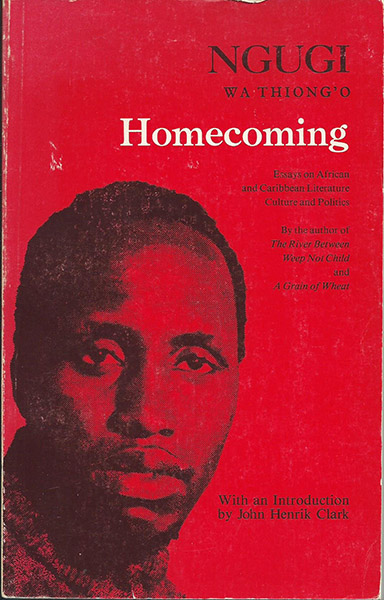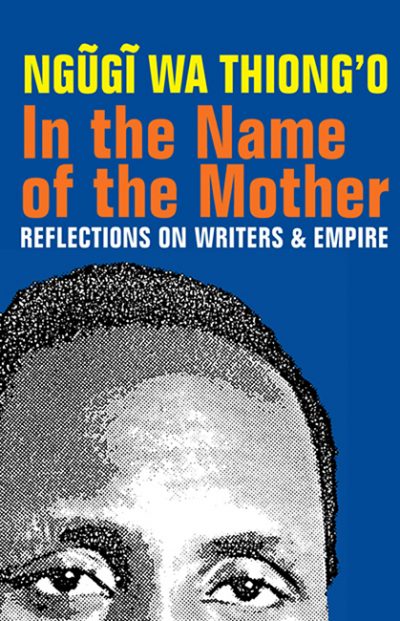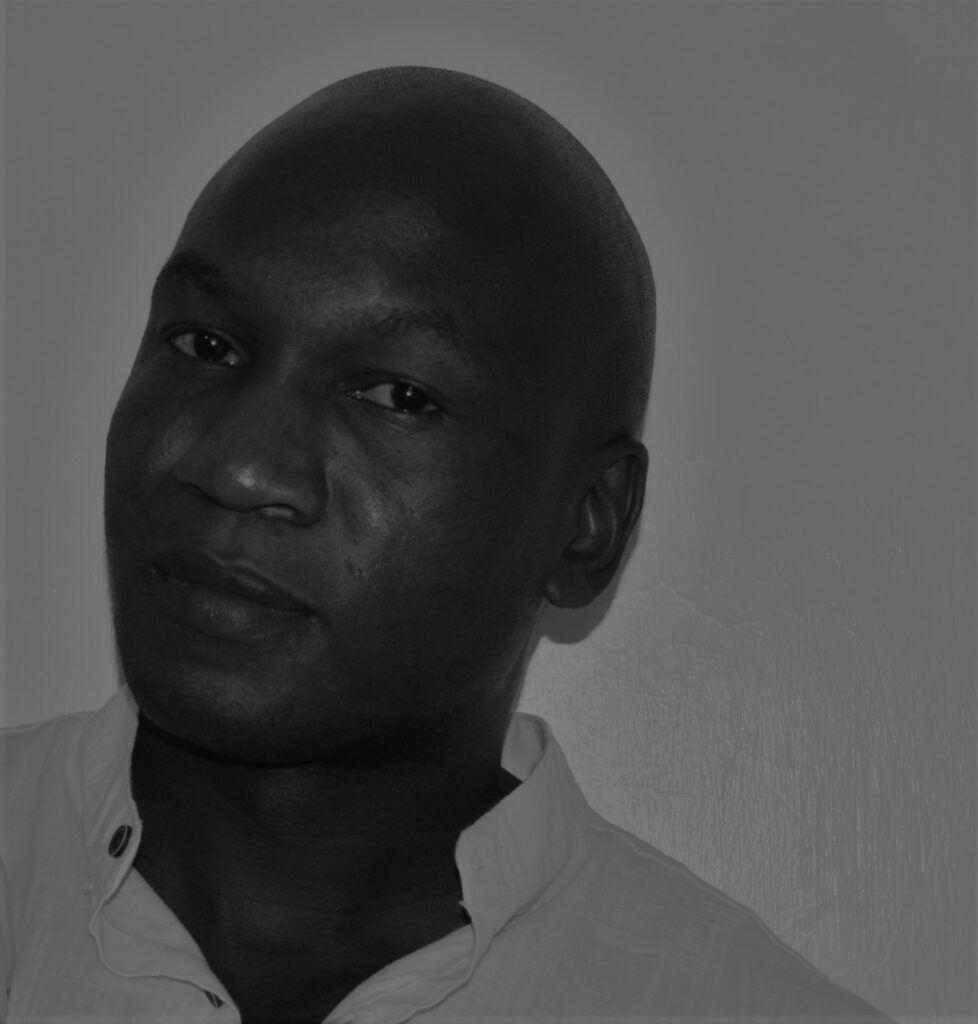Being Ngũgĩ wa Thion’go: A Case of the Son’s Tweet
“My father Ngũgĩ wa Thiong’o physically abused my late mother – he would beat her up. Some of my earliest memories are of me going to visit her at my grandmother’s where she would seek refuge. But with that said it is the silencing of who she was that gets me. Ok- I have said it”.
This is a copy of the tweet that Professor Mũkoma wa Ngũgĩ posted on his X handle on March 13, 2024. By the time I was writing this piece, the tweet had garnered 2.2 million views, perhaps the highest of all the tweets Mukoma has ever posted in recent times (I checked). It has also been liked by 7,500 people/tweeps and retweeted over 4,000 times.
Whereas I am a keen user of X (formerly Twitter) I didn’t see the tweet until much later. I first bumped into it in one of the WhatsApp Groups where I am a member. The first thing I checked was whether the account was a parody, or belonged to the real Mũkoma wa Ngũgĩ.
Soon, like a salacious gossip about a philandering celebrity or scandal involving a corrupt politician, people began to talk. In this group mostly filled by professors and PhD holders (I am neither of the above), thoughts were varied and diverse as they came.
The Comments
Others bordered on misogyny while others were feministic. Elsewhere on Twitter/X, Prof. Mukoma was being admonished and celebrated in equal measure. Those who commented on his post felt that by spilling family secrets to all and sundry he had betrayed his father’s good reputation and social standing. Others felt he had blighted our beloved and celebrated novelist, playwright, and literature guru’s beautiful academic, activism, and literary legacy. Others however hailed him as a hero and encouraged more men to speak up or die (through depression) of bottled-up trauma.
On the same day, while reading the People Daily Newspaper, I encountered an article written by Fanne Mwambi. Fanne has edited several of my manuscripts. I know her at a personal level. She talked about her mother’s pain at the hands of her father’s violent nature. In her article, she wrote: “My mother expressed pain and despair in her face, and it broke my heart. I knew my father was violent and even witnessed it, but we barely knew what happened behind the bedroom doors.”
Her take and Mukoma’s were not so different. Her recollection of her father was that she beat up her mother and this left permanent scars.
I took a keen interest in reading through the posts on WhatsApp and on X about Mũkoma’s tweet. What I observed from the many comments was that it was normal for men to beat up their wives in the 70s or 80s. The commenters agreed it was normal; almost a tradition.
One key comment however got me curious. It was by an X user named Zakes Mda (Zanemvula Kizito Gatyeni) who showed solidarity with Mukoma. He said “I am greatly moved by your tweet, son (I can call you that; you’re two years younger than my oldest son). This is the bravest thing any son of an icon can do. Ignore those who are denouncing you. What is more important is your truth and you’re healing. Many of us need such reckoning with the truth of our past. My father never physically beat up my mother – to my knowledge. But his words were abusive to her most times. I never said or did anything about it. I thought it was normal, it was how real men talked to women. It was the same when I saw Nelson Mandela slap his wife Evelyn in the kitchen in the presence of us kids. Here too I thought it was a normal thing that men should do occasionally – discipline “their” women. It was only on looking back as a young adult that I realized that what I saw growing up had left me traumatized. It was only after I had written about these incidents in my memoirs that I felt relief, and I came face-to-face with my humanity once again. Like you, I was denounced by those who have placed themselves as gatekeepers of what is or is not African. They can all go fry eggs”.
I am still not certain what to make of Mukoma’s tweet. Nonetheless, I had many questions; for example, by making this secret public, did he add to the long list of “rejections” Ngũgĩ has suffered in life?
The Rejections
Historically, Prof Ngũgĩ was “rejected” by his own country for fighting for his rights. Under the administration of former President Daniel Arap Moi, Ngũgĩ was imprisoned for a year in 1977 at Kamiti Maximum Security prison without charge.
He left the nation after his release in 1982 when forces destroyed a theatre where one of his plays was being staged. He nonetheless continued writing first in Kenya, then in exile in London, and eventually in the United States, where he has been a literature professor.
On 10 November 2006, while in San Francisco at Hotel Vitale at the Embarcadero, it was reported that Prof. Ngũgĩ was harassed and ordered to leave the hotel by an employee.
In August 2004, only a few weeks after returning from a 22-year exile, Ngũgĩ was attacked, and his second wife Njeeri was sexually assaulted. In his interview with Carey Baraka on June 13, 2023, Ngũgĩ said: “It wasn’t a simple robbery, … “It was political – whether by remnants of the old regime or part of the new state outside the main current […] the whole thing was meant to humiliate, if not eliminate, us.”
It was also in the same article published by The Guardian where Baraka wrote: “As Ngũgĩ has grown older, his health has deteriorated. In 1995, he was diagnosed with prostate cancer, which he survived, despite a grim medical forecast that gave him three months to live. In December 2019, he underwent triple bypass heart surgery. Around the same period, he began to suffer from kidney failure, the same condition that killed one of his brothers”. The article further reported that Ngũgĩ and his wife were going through a divorce.
But in a quick rejoinder, Ngũgĩ’s son Mukoma, dismissed the article as being unethical and containing gossip. He also added that hat his father was “doing well” and that he was “not sick or lonely.”
That apart, for the last decade Ngũgĩ has been poised to win the Nobel Peace Prize but each year, this dream has appeared elusive.
So, when his son who often accompanies his father to global knowledge-sharing platforms for literary discussions would tell the world that the Ngũgĩ whom we love may not have loved his mother much, one begins to wonder whether Mukoma was adding to the long list of rejections that Ngũgĩ has had to deal with or just looking for closure?

My thoughts
My first take when I saw the tweet from Prof Mukoma was that he has every right to talk about his emotions how he deems fit. He owes no one explanation of what he speaks. The only caveat to this was that on this matter, his thoughts involved him and his father. So, whereas it is his story, it is also his father’s story.
Secondly, this event happened somewhere I presume in 1970-1975 or thereabout. Many comments from people born during this period agreed that indeed, abuse of women happened in 98% of homesteads. It was almost a normal occurrence. This doesn’t make it right. But the crimes of 1975 can’t be litigated with the standards of 2024. Especially in the court of public opinion.
Three, many agree that the matter is complex. Ngũgĩ has been a human rights activist. And was persecuted for fighting for the same rights which would lead to his exile. How does one reconcile him being an abuser/perpetrator and also fighting for the same rights?
Fourth, Ngũgĩ is a world-renowned literature professor. He has influenced and inspired many across the world and has been considered a Nobel Peace Prize contender in literature. Does this revelation stain his good global standing?
Fifth, it is his son who is the accuser. And his son is not some village vagabond, high on cheap liquor but a scholar. A professor no less. What consequences does this carry?
Sixth, is the timing. Prof Mukoma’s post whether done in good faith (part of his healing process) or spite of his father is going to subject his father to 2024 standards for crimes committed in the 1970s. In the courts of public opinion, Prof Ngũgĩ will be prosecuted using 2024 social media and canceling culture. Is this fair or unfair? If yes, to whom? fair to the son looking for healing or unfair to the father who was also a victim turned abuser?
The Arguments
Almost all adults are as a result of our early childhood experiences. Almost every adult has scars and unhealed wounds from childhood. The difference is how we deal with the trauma. Others believe that talking about it is part of maturing – for when our trauma is left buried within, it erupts in unimaginable ways. Others feel that they need to keep it as part of the self-preservation of their kin and kith’s legacy. Is Mukoma’s tweet another case of ‘me-too’ against his old man? Is he seeking posthumous retribution for his mistreated mother? or is he seeking to inflict one more round of international contempt on his father’s whole heritage of honor before he dies?
Mukoma appears to have chosen to offload his burdened childhood to maintain his sanity and humanity. It also appears that he is doing this to bring up his mother’s humanity, which he feels has been silenced, as well as his recovery. The question some ask is why he kept it for this long and why now.
In another related tweet which is pinned on Mukoma’s handle, he says: “It hurts to see my late mother, Nyambura (my daughter is named after her) being systemically erased from the Ngũgĩ wa Thiong’ostory. We literally (of course) and figuratively would not be here if it was not for her keeping us glued together through the political persecutions”. It should be noted that Ngũgĩ missed Nyambura’s (Ngugi’s first wife) burial for he was in exile. It appears that Mukoma has not stopped mourning his mother, primarily because he believes she has faded into insignificance.
Critical details
Beyond these heavy questions and pedestrian assumptions, some critical details in Mukoma’s brief tweet require our indulgence. Firstly, Mukoma’s mother was repeatedly abused by Ngũgĩ, forcing her to flee to his grandmother’s home. Mukoma’s first memories are visiting a battered mother who had escaped abuse. That is difficult for a small boy. According to Mukoma, there is a “silencing” of Nyambura. Whatever this means, it seems serious, and it still affects him!
It appears Mukoma’s burden is the fact that her mother’s pain has never been publicly discussed, nor has she been awarded sufficient credit for keeping the family together while Ngũgĩ was in detention. The question is, why? The second is, has Njeeri, Ngũgĩ’s second wife been offered similar treatment or she has gotten her share of the claim of significance in Ngũgĩ’s glorious writing and academic accolades?

Last word
The argument that all families have secrets tucked away in dark closets may be true, but one would argue that it is this preservation of one’s perceived reputation that has gotten us here. I guess seeing your mother repeatedly battered is not something we should keep in the closet but acknowledge and apologize for.
Perhaps that small act of apology may be the big cure that Mukoma needs to start his healing process. But before Ngũgĩ apologizes, there are two things that we must put to light. One, Ngũgĩ was equally a victim of domestic violence. He too saw his father batter his mother.
It seems that his son Mukoma is carrying the brunt of his suffering. Which then offers support to Mukoma’s tweet. His talking about it breaks the generational traumas bottled up.
In his autobiography, “Dreams in a Time of War: A Childhood Memoir”, Ngũgĩ describes how one evening his father summoned and then kicked him out of the house. He was then ordered to follow his mother. The weight of his father’s betrayal and rejection is put in Gikuyu, ‘rûmîrìra nyūkwa’ (follow your mother) Nyūkwa is insulting and condescending. In the homestead of his maternal grandfather, he finished his elementary schooling.
Two is the lesson from Nelson Mandela. He once said, “I am not a saint unless you think of a saint as a sinner who keeps on trying.” He encouraged criticism of his personality and weaknesses. Perhaps Prof. Ngũgĩ should use this moment to welcome anyone else who feels slighted by his actions or inactions to speak freely. This will make him a better human being, and indeed a better father.



